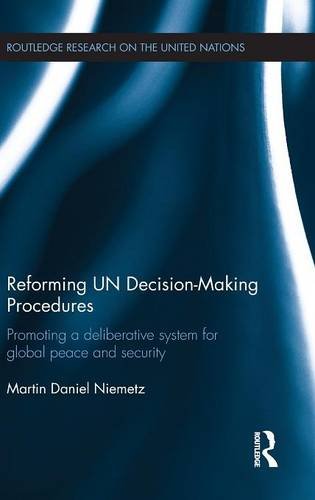

Most ebook files are in PDF format, so you can easily read them using various software such as Foxit Reader or directly on the Google Chrome browser.
Some ebook files are released by publishers in other formats such as .awz, .mobi, .epub, .fb2, etc. You may need to install specific software to read these formats on mobile/PC, such as Calibre.
Please read the tutorial at this link. https://ebooknice.com/page/post?id=faq
We offer FREE conversion to the popular formats you request; however, this may take some time. Therefore, right after payment, please email us, and we will try to provide the service as quickly as possible.
For some exceptional file formats or broken links (if any), please refrain from opening any disputes. Instead, email us first, and we will try to assist within a maximum of 6 hours.
EbookNice Team

Status:
Available4.6
40 reviewsThe institutional procedures for the UN’s decision-making on issues of global peace and security, first and foremost the Security Council (SC), were conceived with the objective of enabling a swift but internationally coordinated response to irregular situations of crises. Today, however, the UN is constantly involved in situations of conflict and has expanded its range of activities.
This book offers a concrete and practically applicable answer to the question of how to reform the UN and increase the legitimacy of the UN’s decision-making procedures on issues of global peace and security. In order to provide this answer, it connects the minutia of institutional design with the abstract principals of democratic theory in a systematic and reproducible method, thereby enabling a clear normative evaluation of even the smallest technical detail of reform. This evaluation demonstrates that there is a range of feasible proposals for reform that could improve the SC’s accountability both to the General Assembly and to the general public, that could increase the opportunities for effective input from the UN membership and NGOs.
This book will be of interest to students and scholars of the United Nations, International Organizations and regional governance.